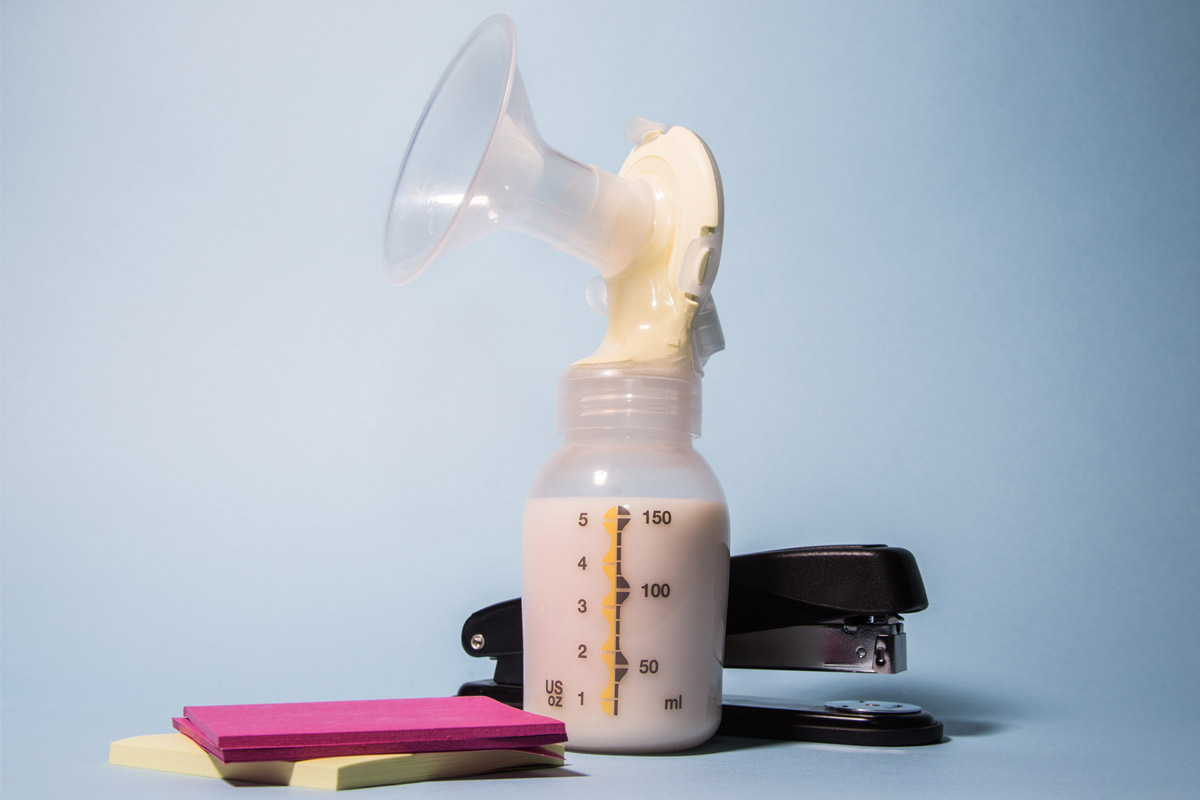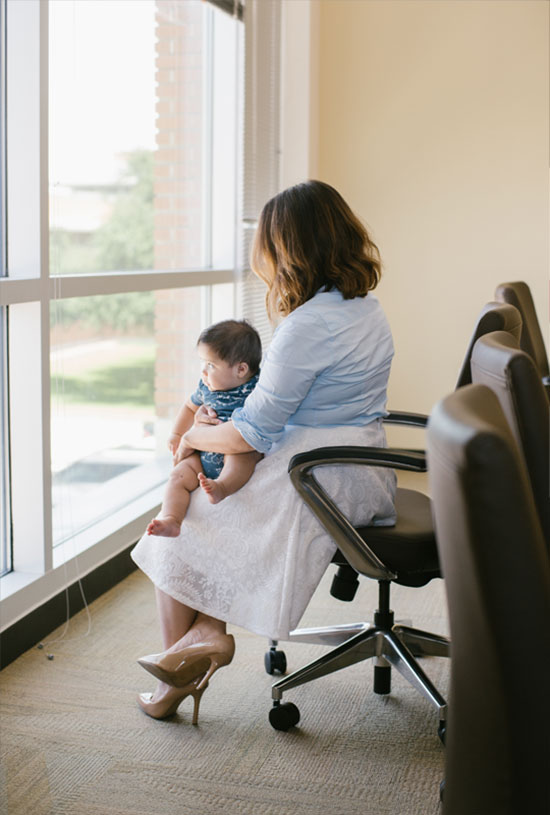The Work Climate can Deter Moms from Breastfeeding

Breastfeeding moms (and the partners who support them) are experts on the practice. Their decision is informed by copious amounts of reading, internet searches and sage advice from doctors, health practitioners and other moms. It comes with an acute awareness of the commitment it requires and the commentary it breeds.
But more than anything, breastfeeding is healthy for baby and for mom. Studies have shown its positive impact on childhood obesity, infections and allergies, and its link to a lower likelihood of mothers getting ovarian or breast cancers later in life. Breastfeeding also promotes a positive maternal-child relationship.
But there are surprising obstacles to mom and baby receiving the full benefits of breastfeeding.
“We know here in the U.S. women generally go back to work within 12 weeks. For them to continue to manage exclusive breastfeeding while at work, they have to take breaks to pump milk that their infants can consume later,” said Christiane Spitzmueller, associate professor of industrial organizational psychology. “A single pumping session can take about 20 minutes. Consequently, many women quit when they realize how hard it is to reconcile the time demands between breastfeeding and working.”
One of the research areas for Spitzmueller involves work and family, specifically the factors that impact whether employees are healthy and productive contributors in the work and home lives. Her studies examine which work characteristics are really detrimental to that delicate work-life health, well-being and balance.
“Through our work-family research, we aim to answer these questions in order to better understand the work-family interface and ultimately contribute to the well-being of families and organizations,” she said.

The American Academy of Pediatrics recommends exclusive breastfeeding for six months and continuation of breastfeeding for 12 months or longer. The Affordable Care Act requires employers to provide time and a space for mothers to express milk.
In a study published in the Journal of Organizational Behavior, Spitzmueller and her team used a data set from the Centers for Disease Control to examine survey responses from 859 women returning to work to see if their work experiences were predictors of their breastfeeding decisions. They measured moms’ intention to breastfeed their children, the workplace climate and the presence of “instrumental breastfeeding support,” like sufficient break times, lactating rooms and refrigerators to store expressed breast milk.
Of the 859, just over 300 continued to breastfeed while also supplementing with formula or infant cereals. Just seven women managed to nourish their child only with breast milk for the recommended six months.
“Things like having a refrigerator to store expressed breast milk or having space to pump breast milk are really helpful,” she said. “It was really the more intricate, social interactions, like listening to other people’s jokes or to comments that they’re (moms) more committed to pumping during the day than to working that had a greater impact. These had a stronger impact on women’s decisions to continue to nurse, especially exclusive breastfeeding, than these official support mechanisms.”
Additionally, Spitzmueller says women with a supportive supervisor were eight times more likely to continue exclusive breastfeeding than women with a non-supportive supervisor. The study recommends more training for supervisors that emphasizes the health benefits to their new-mom employees, and illustrates how breastfeeding is a health-related work behavior that could help retain good employees.
“When women are at work they’re perceived as employees and their career identity is the priority, rather than their identity as a woman and as a mother. When a woman needs to pump breast milk, that immediately emphasizes her maternal and non-workplace role over her career role,” Spitzmueller said. “Workplaces have become fairer, but when there are competing life demands I don’t think we’ve been as successful as we could be or should be.”
Next Story:
Voyage to Discovery
Professor William Sager and students recently sailed to the origins of Tamu Massif, the world's largest volcano.